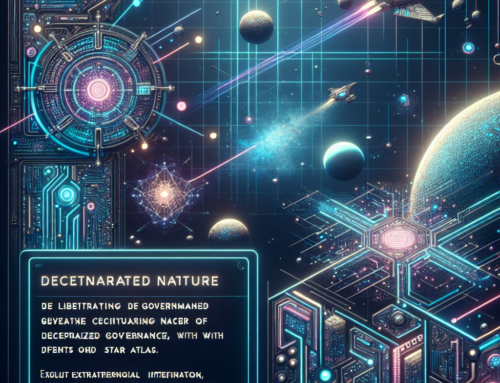Populist Uprisings in Star Atlas: Titan Analytics Insight

Populist Uprisings in Star Atlas: Titan Analytics Insight
In the ever-expanding universe of Star Atlas, a fascinating aspect to explore is the dynamics of governance and community engagement. At Titan Analytics, we delve deep into the interplay of power and democracy among factions. This article will shine a light on the concept of populist uprisings within the context of Star Atlas, drawing parallels with real-world movements and their implications for gameplay and strategy.
Understanding Populist Uprisings
At its core, a populist uprising occurs when a significant group of people challenges the established power structures, typically seeking to address perceived inequalities or injustices. In Star Atlas, various factions represent different ideologies and communities, each with unique resources and goals. When players feel their interests are not being represented or that the existing leadership is unresponsive, we might see a ‘populist’ movement within the game.
The Role of Players in Governance
In Star Atlas, players can participate in the governance of their factions. They have the power to influence decisions that shape the economy, strategy, and social dynamics of their virtual world. If a faction’s leadership strays from its foundational values or neglects player concerns, discontent can arise. This discontent often sparks calls for change, showcasing the potency of collective player voices.
Historical Context within Star Atlas
Historically, each faction in Star Atlas has its own narrative. For instance, the belief systems of factions like the ONI or the MUD territory reflect various levels of authority and citizen involvement. If players feel disconnected or disenfranchised, they might rally under a new banner — much like real-world populist movements where people rise together to demand reform.
Mechanics of Upheaval
The mechanics of a populist uprising in Star Atlas can manifest through several avenues:
- Player Alliances: Forming alliances to challenge the current leadership can create a formidable force, pushing for changes in governance or faction policies.
- Resource Allocation: Decisions made by leadership regarding resource distribution can lead to dissatisfaction. If players perceive unfairness, a movement may begin to rectify these grievances.
- Community Engagement: Increased community dialogue can galvanize players, leading to grassroots initiatives that prioritize the interests of the player base over the interests of a small elite.
Implications for Strategy
Understanding populist uprisings can provide strategic insights for players. Being in tune with player sentiment can be incredibly beneficial. Leaders within factions must engage actively with their members, clearly communicating their strategies and paying attention to the concerns raised by their player base.
Moreover, players can leverage these uprisings to their advantage. By aligning with or supporting the movements, they can secure better positioning within the faction’s power structure. Conversely, neglecting or dismissing these movements can lead to resource fragmentation or the rise of competing factions that may threaten their interests.
Conclusion
The concept of populist uprisings in Star Atlas is an engaging lens through which to examine player behavior and faction dynamics. By recognizing the power of community voices and the importance of responsive leadership, players can navigate this vast universe with greater acuity and strategy.
For more insights and detailed analytics about Star Atlas, visit Titan Analytics Star Atlas Data Modules or feel free to reach out through our Contact Page. We’re here to help you explore the expansive possibilities within Star Atlas!




